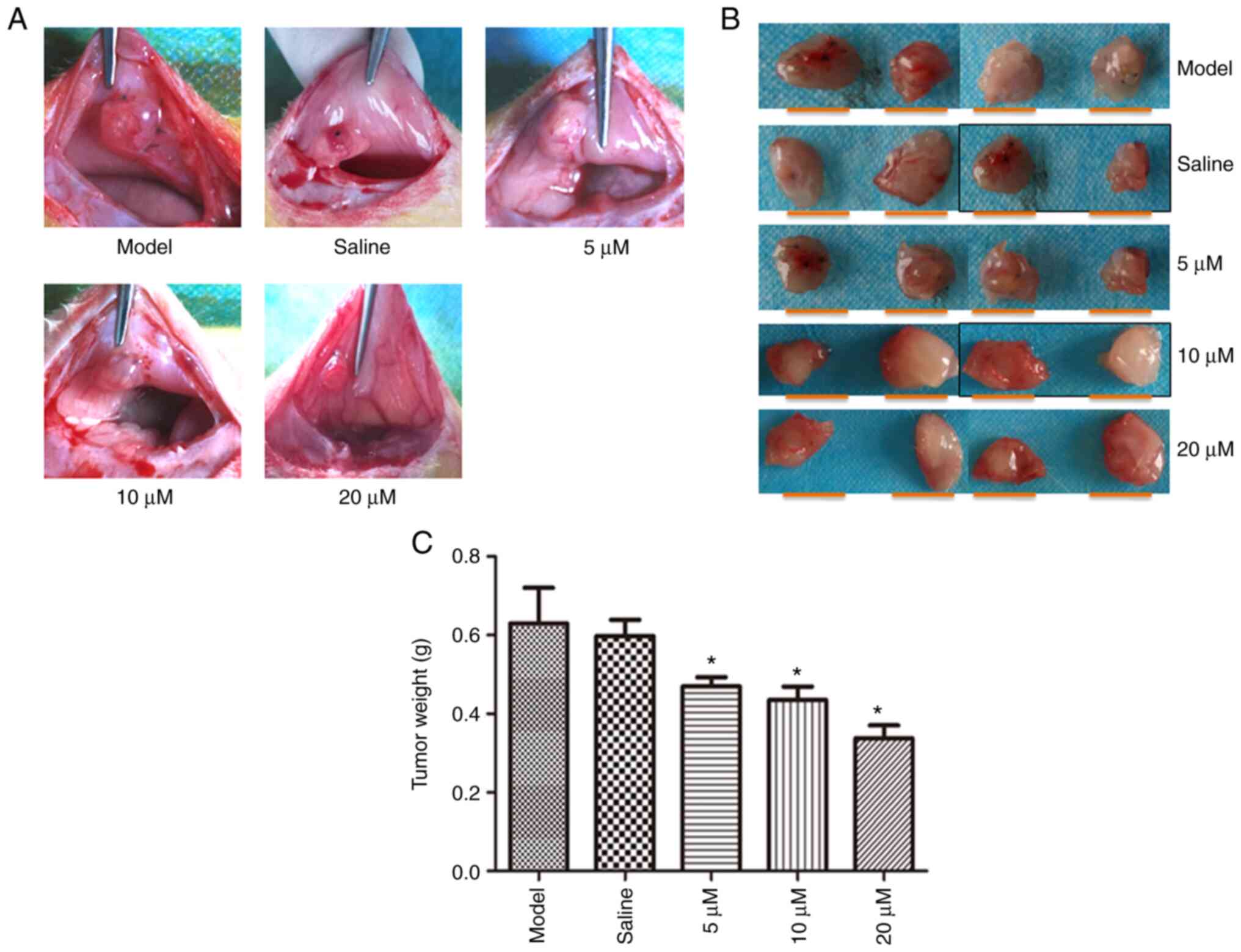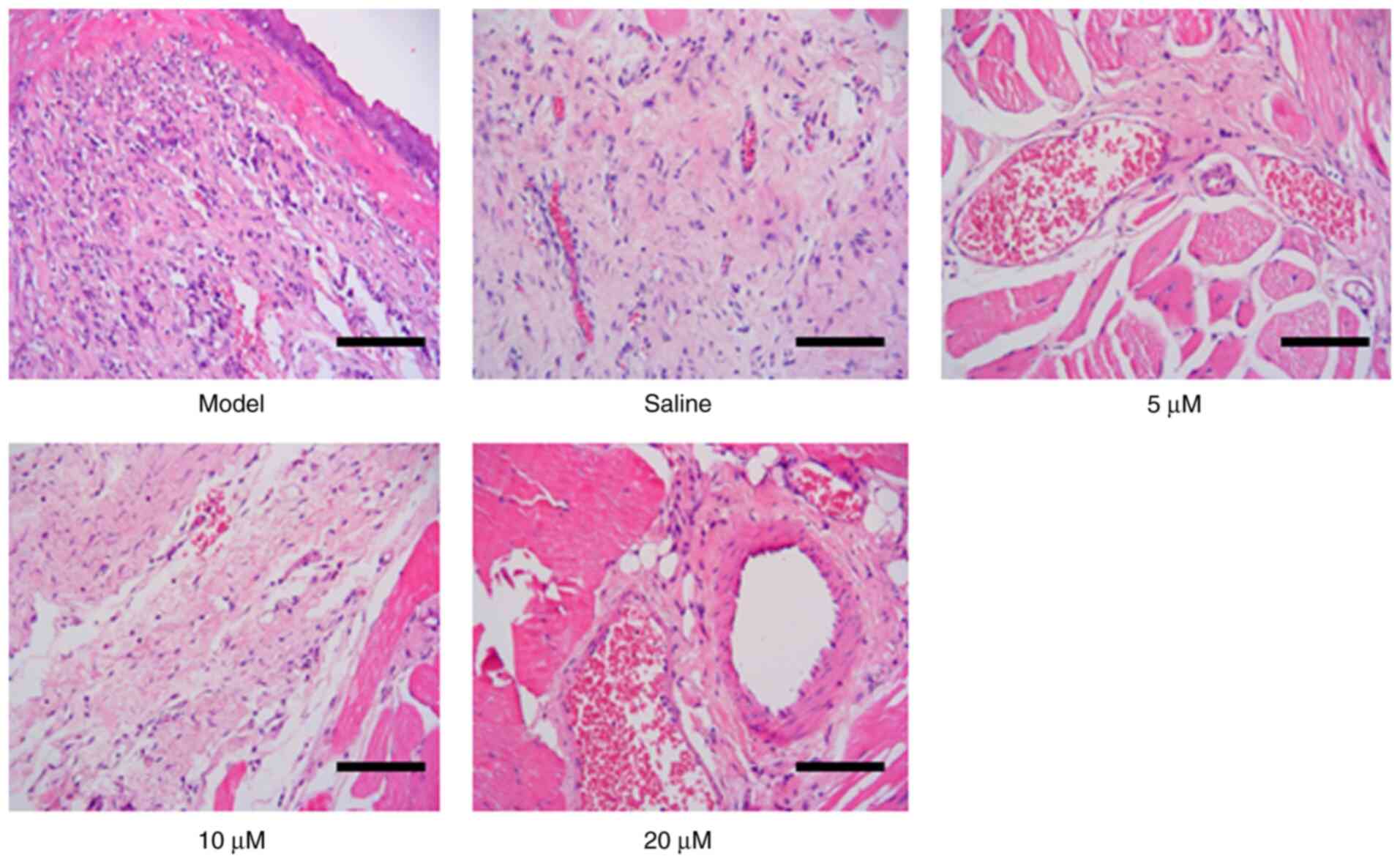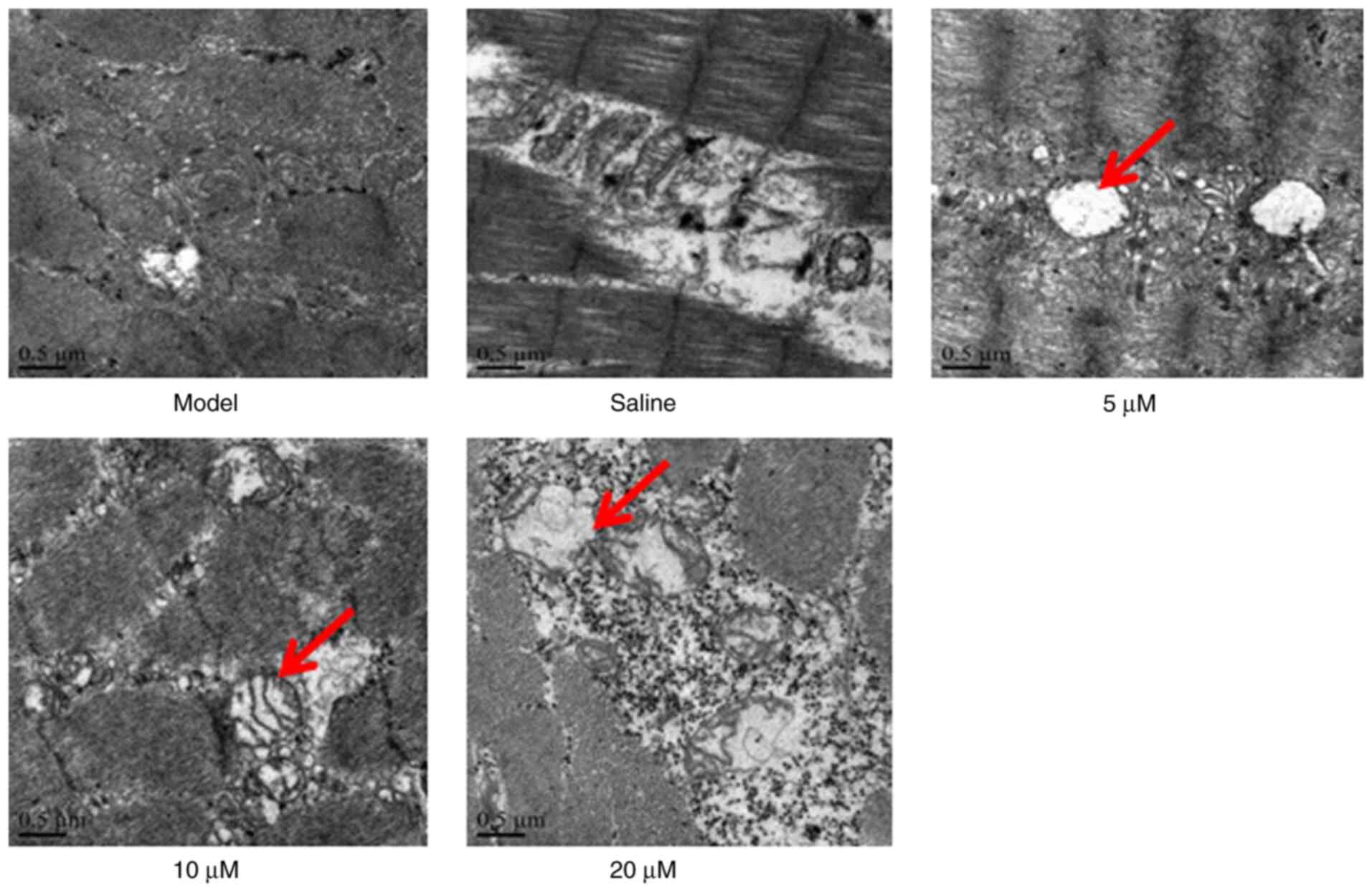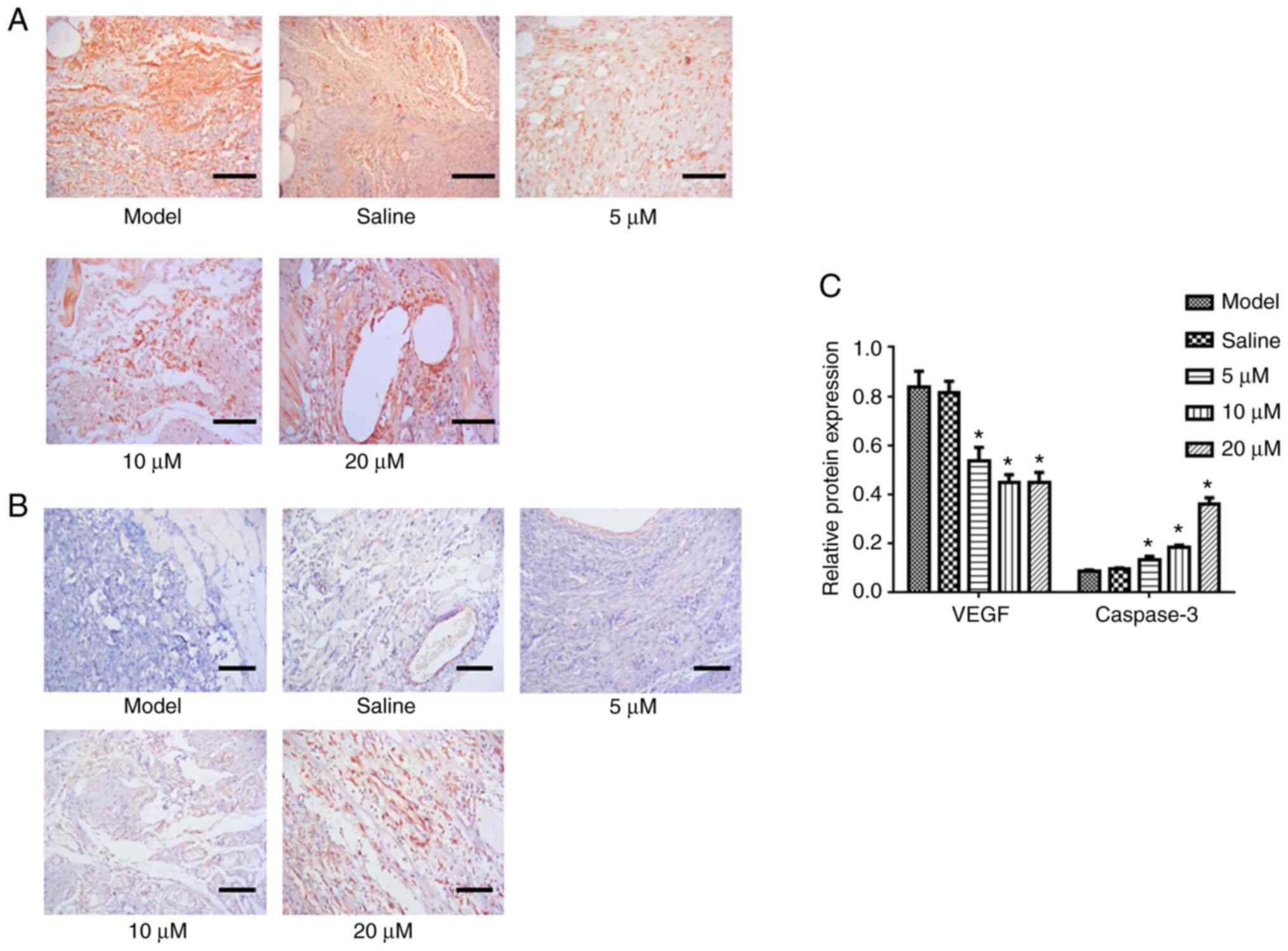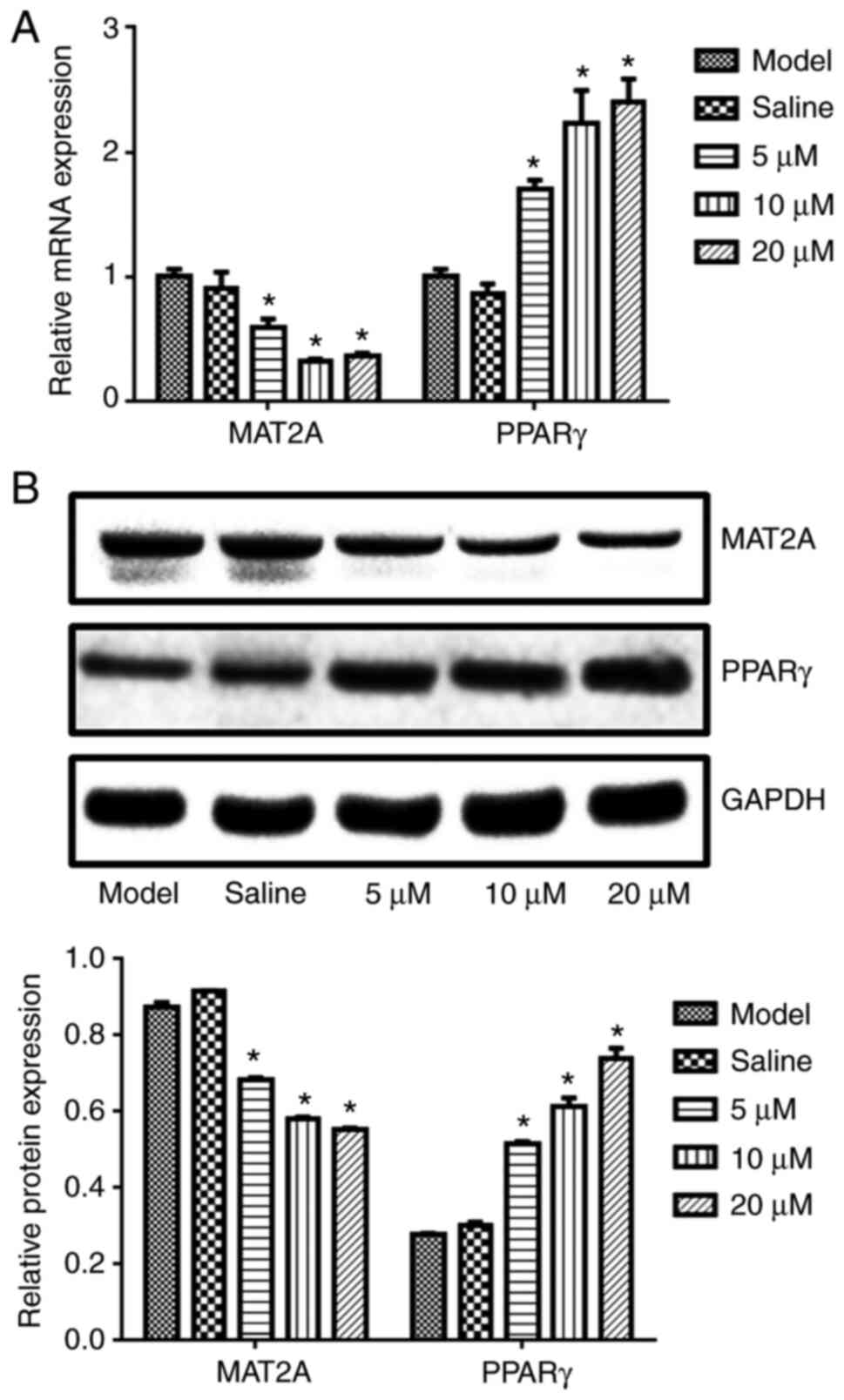|
1
|
Arablou T and Kolahdouz-Mohammadi R:
Curcumin and endometriosis: Review on potential roles and molecular
mechanisms. Biomed Pharmacother. 97:91–97. 2018. View Article : Google Scholar : PubMed/NCBI
|
|
2
|
Zhao RH: Strategies for activating blood
circulation-regulating gan (Liver)-tonifying shen (Kidney)
sequential therapy of endometriosis-associated infertility. Chin J
Integr Med. 25:243–245. 2019. View Article : Google Scholar : PubMed/NCBI
|
|
3
|
Zhu H, Cao XX, Liu J and Hua H:
MicroRNA-488 inhibits endometrial glandular epithelial cell
proliferation, migration, and invasion in endometriosis mice via
Wnt by inhibiting FZD7. J Cell Mol Med. 23:2419–2430. 2019.
View Article : Google Scholar : PubMed/NCBI
|
|
4
|
Lebovic DI, Kavoussi SK, Lee J, Banu SK
and Arosh JA: PPARγ activation inhibits growth and survival of
human endometriotic cells by suppressing estrogen biosynthesis and
PGE2 signaling. Endocrinology. 154:4803–4813. 2013. View Article : Google Scholar : PubMed/NCBI
|
|
5
|
Clemenza S, Sorbi F, Noci I, Capezzuoli T,
Turrini I, Carriero C, Buffi N, Fambrini M and Petraglia F: From
pathogenesis to clinical practice: Emerging medical treatments for
endometriosis. Best Pract Res Clin Obstet Gynaecol. 51:92–101.
2018. View Article : Google Scholar : PubMed/NCBI
|
|
6
|
Jafarabadi M, Salehnia M and Sadafi R:
Evaluation of two endometriosis models by transplantation of human
endometrial tissue fragments and human endometrial mesenchymal
cells. Int J Reprod Biomed. 15:21–32. 2017.PubMed/NCBI
|
|
7
|
Liu X, Yu H, Yang L, Li C and Li L:
15-Deoxy-D (12,14)-prostaglandin J(2) attenuates the biological
activities of monocyte/macrophage cell lines. Eur J Cell Biol.
91:654–661. 2012. View Article : Google Scholar : PubMed/NCBIPubMed/NCBI
|
|
8
|
Demirturk F, Aytan H, Caliskan AC, Aytan P
and Koseoglu DR: Effect of peroxisome proliferator-activated
receptor-gamma agonist rosiglitazone on the induction of
endometriosis in an experimental rat model. J Soc Gynecol Investig.
13:58–62. 2006. View Article : Google Scholar : PubMed/NCBI
|
|
9
|
Dworzanski T, Celinski K, Korolczuk A,
Slomka M, Radej S, Czechowska G, Madro A and Cichoz-Lach H:
Influence of the peroxisome proliferator-activated receptor gamma
(PPAR-γ) agonist, rosiglitazone and antagonist,
biphenol-A-diglicydyl ether (BADGE) on the course of inflammation
in the experimental model of colitis in rats. J Physiol Pharmacol.
61:683–693. 2010.PubMed/NCBI
|
|
10
|
Li Z, Liu H, Lang J, Zhang G and He Z:
Effects of cisplatin on surgically induced endometriosis in a rat
model. Oncol Lett. 16:5282–5290. 2018.PubMed/NCBI
|
|
11
|
Livak KJ and Schmittgen TD: Analysis of
relative gene expression data using real-time quantitative PCR and
the 2(-Delta Delta C(T)) method. Methods. 25:402–408. 2001.
View Article : Google Scholar : PubMed/NCBI
|
|
12
|
Zubrzycka A, Zubrzycki M, Perdas E and
Zubrzycka M: Genetic, epigenetic, and steroidogenic modulation
mechanisms in endometriosis. J Clin Med. 9:13092020.
|
|
13
|
Zhou WJ, Yang HL, Shao J, Mei J, Chang KK,
Zhu R and Li MQ: Anti-inflammatory cytokines in endometriosis. Cell
Mol Life Sci. 76:2111–2132. 2019. View Article : Google Scholar : PubMed/NCBI
|
|
14
|
Zani ACT, Valerio FP, Meola J, da Silva
AR, Nogueira AA, Candido-Dos-Reis FJ, Poli-Neto OB and Rosa-E-Silva
JC: Impact of bevacizumab on experimentally induced endometriotic
lesions: Angiogenesis, invasion, apoptosis, and cell proliferation.
Reprod Sci. 27:1943–1950. 2020.
|
|
15
|
Loy CJ, Evelyn S, Lim FK, Liu MH and Yong
EL: Growth dynamics of human leiomyoma cells and inhibitory effects
of the peroxisome proliferator-activated receptor-gamma ligand,
pioglitazone. Mol Hum Reprod. 11:561–566. 2005. View Article : Google Scholar : PubMed/NCBI
|
|
16
|
Heaney AP, Fernando M and Melmed S:
PPAR-gamma receptor ligands: Novel therapy for pituitary adenomas.
J Clin Invest. 111:1381–1388. 2003. View Article : Google Scholar : PubMed/NCBI
|
|
17
|
Panigrahy D, Huang S, Kieran MW and
Kaipainen A: PPARgamma as a therapeutic target for tumor
angiogenesis and metastasis. Cancer Biol Ther. 4:687–693. 2005.
View Article : Google Scholar : PubMed/NCBI
|
|
18
|
Aytan H, Caliskan AC, Demirturk F, Aytan P
and Koseoglu DR: Peroxisome proliferator-activated receptor-gamma
agonist rosiglitazone reduces the size of experimental
endometriosis in the rat model. Aust N Z J Obstet Gynaecol.
47:321–325. 2007. View Article : Google Scholar : PubMed/NCBI
|
|
19
|
Nenicu A, Korbel C, Gu Y, Menger MD and
Laschke MW: Combined blockade of angiotensin II type 1 receptor and
activation of peroxisome proliferator-activated receptor-γ by
telmisartan effectively inhibits vascularization and growth of
murine endometriosis-like lesions. Hum Reprod. 29:1011–1024. 2014.
View Article : Google Scholar : PubMed/NCBI
|
|
20
|
Chang HJ, Lee JH, Hwang KJ, Kim MR and Yoo
JH: Peroxisome proliferator-activated receptor g agonist suppresses
human telomerase reverse transcriptase expression and aromatase
activity in eutopic endometrial stromal cells from endometriosis.
Clin Exp Reprod Med. 40:67–75. 2013. View Article : Google Scholar : PubMed/NCBI
|
|
21
|
Olivares C, Ricci A, Bilotas M, Barañao RI
and Meresman G: The inhibitory effect of celecoxib and
rosiglitazone on experimental endometriosis. Fertil Steril.
96:428–433. 2011. View Article : Google Scholar : PubMed/NCBI
|
|
22
|
Lebovic DI, Mwenda JM, Chai DC, Santi A,
Xu X and D'Hooghe T: Peroxisome proliferator-activated
receptor-(gamma) receptor ligand partially prevents the development
of endometrial explants in baboons: A prospective, randomized,
placebo-controlled study. Endocrinology. 151:1846–1852. 2010.
View Article : Google Scholar : PubMed/NCBI
|
|
23
|
Lagana AS, Garzon S, Götte M, Viganò P,
Franchi M, Ghezzi F and Martin DC: The pathogenesis of
endometriosis: Molecular and cell biology insights. Int J Mol Sci.
20:56152019. View Article : Google Scholar
|
|
24
|
Lagana AS, Salmeri FM, Ban Frangez H,
Ghezzi F, Vrtacnik-Bokal E and Granese R: Evaluation of M1 and M2
macrophages in ovarian endometriomas from women affected by
endometriosis at different stages of the disease. Gynecol
Endocrinol. 36:441–444. 2020. View Article : Google Scholar : PubMed/NCBI
|
|
25
|
Lagana AS, Salmeri FM, Vitale SG, Triolo O
and Götte M: Stem cell trafficking during endometriosis: May
epigenetics play a pivotal role? Reprod Sci. 25:978–979. 2018.
View Article : Google Scholar : PubMed/NCBI
|
|
26
|
Rashidi BH, Sarhangi N, Aminimoghaddam S,
Haghollahi F, Naji T, Amoli MM and Shahrabi-Farahani M: Association
of vascular endothelial growth factor (VEGF) Gene polymorphisms and
expression with the risk of endometriosis: A case-control study.
Mol Biol Rep. 46:3445–3450. 2019. View Article : Google Scholar : PubMed/NCBI
|
|
27
|
Cazzaniga A, Locatelli L, Castiglioni S
and Maier J: The contribution of EDF1 to PPARγ transcriptional
activation in VEGF-treated human endothelial cells. Int J Mol Sci.
19:18302018. View Article : Google Scholar
|
|
28
|
Li J, Yang S and Zhu G: Postnatal calpain
inhibition elicits cerebellar cell death and motor dysfunction.
Oncotarget. 8:87997–88007. 2017. View Article : Google Scholar : PubMed/NCBI
|
|
29
|
Wang Y, Gao W, Shi X, Ding J, Liu W, He H,
Wang K and Shao F: Chemotherapy drugs induce pyroptosis through
caspase-3 cleavage of a gasdermin. Nature. 547:99–103. 2017.
View Article : Google Scholar : PubMed/NCBI
|
|
30
|
Das I and Saha T: Effect of garlic on
lipid peroxidation and antioxidation enzymes in DMBA-induced skin
carcinoma. Nutrition. 25:459–471. 2009. View Article : Google Scholar : PubMed/NCBI
|
|
31
|
Park JH, Lee SK, Kim MK, Lee JH, Yun BH,
Park JH, Seo SK, Cho SH and Choi YS: Saponin extracts induced
apoptosis of endometrial cells from women with endometriosis
through modulation of miR-21-5p. Reprod Sci. 25:292–301. 2018.
View Article : Google Scholar : PubMed/NCBI
|















